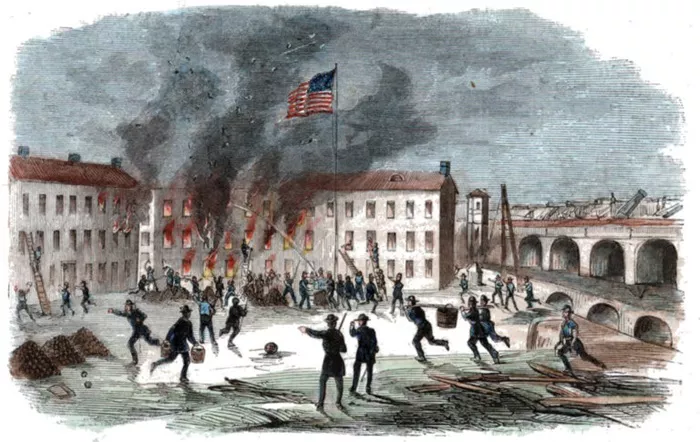February 17 has witnessed significant events throughout American history, spanning political milestones, cultural shifts, and notable deaths. This article will explore these events in detail, providing context and significance to each occurrence.
What Happened on February 17 in American History?
1. The Election of Thomas Jefferson (1801)
On February 17, 1801, Thomas Jefferson was elected as the third president of the United States. This election marked a pivotal moment in American politics as it represented the first peaceful transfer of power between political parties in the nation’s history. Jefferson, a member of the Democratic-Republican Party, defeated incumbent President John Adams of the Federalist Party.Jefferson’s election was significant not only for its peaceful transition but also for its implications on American democracy. It demonstrated that power could shift without violence or upheaval, setting a precedent for future elections. Jefferson’s presidency would later be characterized by his advocacy for agrarianism and states’ rights, contrasting sharply with the Federalist emphasis on a strong central government. His administration is often remembered for the Louisiana Purchase in 1803, which doubled the size of the United States and opened vast territories for exploration and settlement.
2. Fort Sumter Returned to Union Control (1865)
Another critical event occurred on February 17, 1865, during the American Civil War when Fort Sumter in South Carolina was returned to Union control after being held by Confederate forces for nearly a year and a half. Fort Sumter is historically significant as it was the site of the first shots fired in the Civil War on April 12, 1861.The return of Fort Sumter to Union hands symbolized a turning point in the war. By this time, Union forces were gaining momentum against the Confederacy, and this event underscored the weakening grip of Confederate defenses. The fort’s return was part of a broader strategy by Union General William Tecumseh Sherman, who was advancing through the South and aiming to cripple Confederate morale and resources.
3. The Death of Geronimo (1909)
On February 17, 1909, Apache Chief Geronimo passed away while in captivity at Fort Sill, Oklahoma. Geronimo was a prominent leader known for his fierce resistance against both Mexican and American encroachments on Apache lands. His life was marked by numerous raids and escapes from U.S. forces.Geronimo’s death marked the end of an era for Native American resistance against U.S. expansionism. He had become a symbol of Native American defiance and resilience in the face of overwhelming odds. His legacy continues to resonate today as discussions around Native American rights and sovereignty persist.
4. The Opening of the Armory Show (1913)
The Armory Show opened in New York City on February 17, 1913, showcasing modern art that would significantly influence American culture. This exhibition featured works by European artists such as Henri Matisse and Pablo Picasso and introduced Americans to modernist art movements like Cubism and Fauvism.The show was controversial; many attendees were shocked by the avant-garde styles that challenged traditional artistic norms. However, it played a crucial role in shifting American art towards modernism and inspired future generations of artists. The Armory Show is often credited with catalyzing the development of modern art in America.
5. Voice of America Broadcasts (1947)
On February 17, 1947, Voice of America (VOA) made its first radio broadcast to the Soviet Union with the iconic greeting: “Hello! This is New York calling.” This broadcast marked an important step in America’s Cold War propaganda efforts aimed at countering Soviet influence.The VOA aimed to provide listeners in the USSR with a picture of American life and promote democratic ideals during a time when tensions between the two superpowers were escalating. The broadcasts faced challenges from Soviet authorities who jammed signals to prevent their citizens from accessing this information. Despite these obstacles, VOA became a vital tool in disseminating news and information about America to those behind the Iron Curtain.
6. Jeffrey Dahmer Sentenced (1992)
On February 17, 1992, serial killer Jeffrey Dahmer was sentenced to life imprisonment after being convicted of murdering and dismembering at least 17 young men and boys between 1978 and 1991. Dahmer’s heinous acts shocked the nation and brought attention to issues surrounding mental health and criminal justice.His trial revealed disturbing details about his crimes, including elements of necrophilia and cannibalism. Dahmer’s case raised questions about how society handles individuals with severe psychological issues and sparked debates over legal definitions of insanity.
7. Kosovo Declares Independence (2008)
On February 17, 2008, Kosovo declared its independence from Serbia following years of conflict that included ethnic tensions leading up to the Kosovo War (1998-1999). This declaration was significant as it represented a culmination of efforts by ethnic Albanians to gain autonomy after decades of repression under Serbian rule.The international community had mixed reactions; while many countries recognized Kosovo’s independence, others did not, leading to ongoing disputes regarding its status. Kosovo’s independence remains a contentious issue in international relations today.
Conclusion
February 17 has been a date marked by pivotal events that shaped American history across various domains—politics, military conflicts, cultural developments, criminal justice issues, and international relations. Each event reflects broader themes within American society: struggles for power, cultural evolution through art, resistance against oppression, and complex interactions with global counterparts.Understanding these events provides insight into how they have influenced contemporary America and highlights the ongoing narratives that continue to unfold today. As we reflect on February 17 throughout history, we recognize not only its significance but also our collective journey as a nation navigating through triumphs and tribulations alike.
Related Topics:

